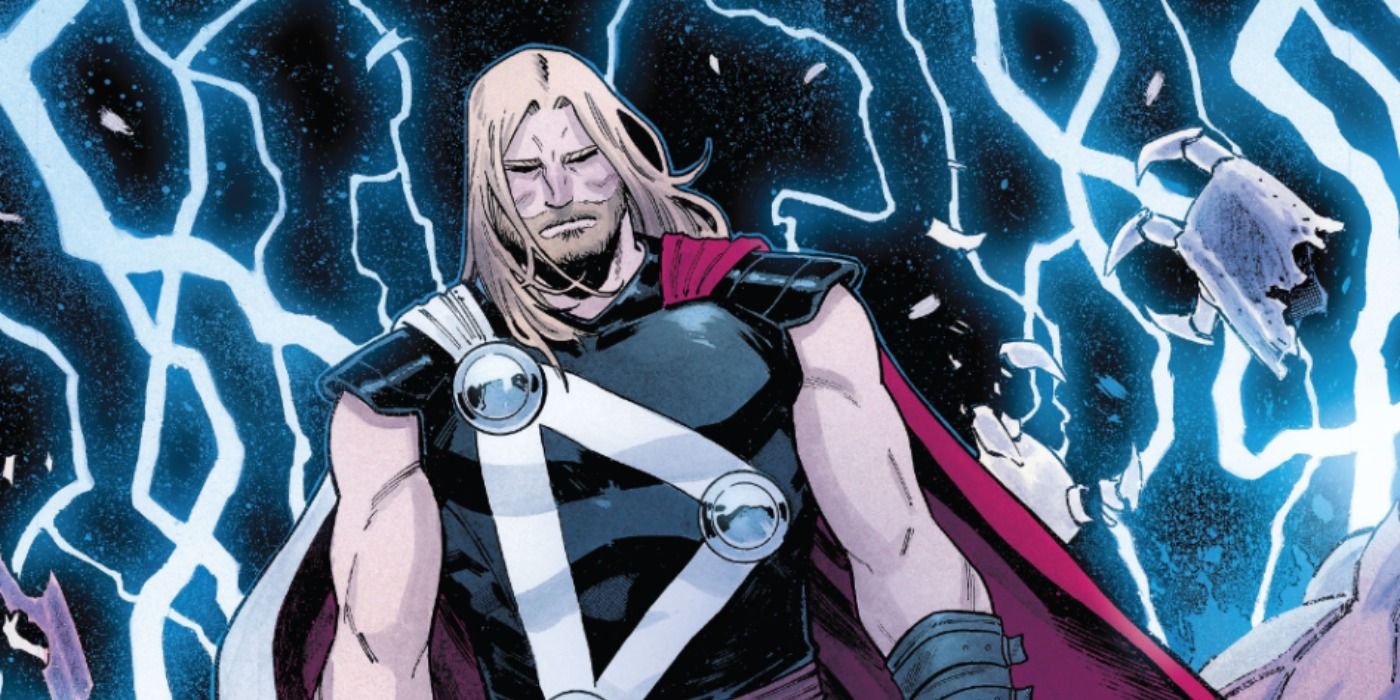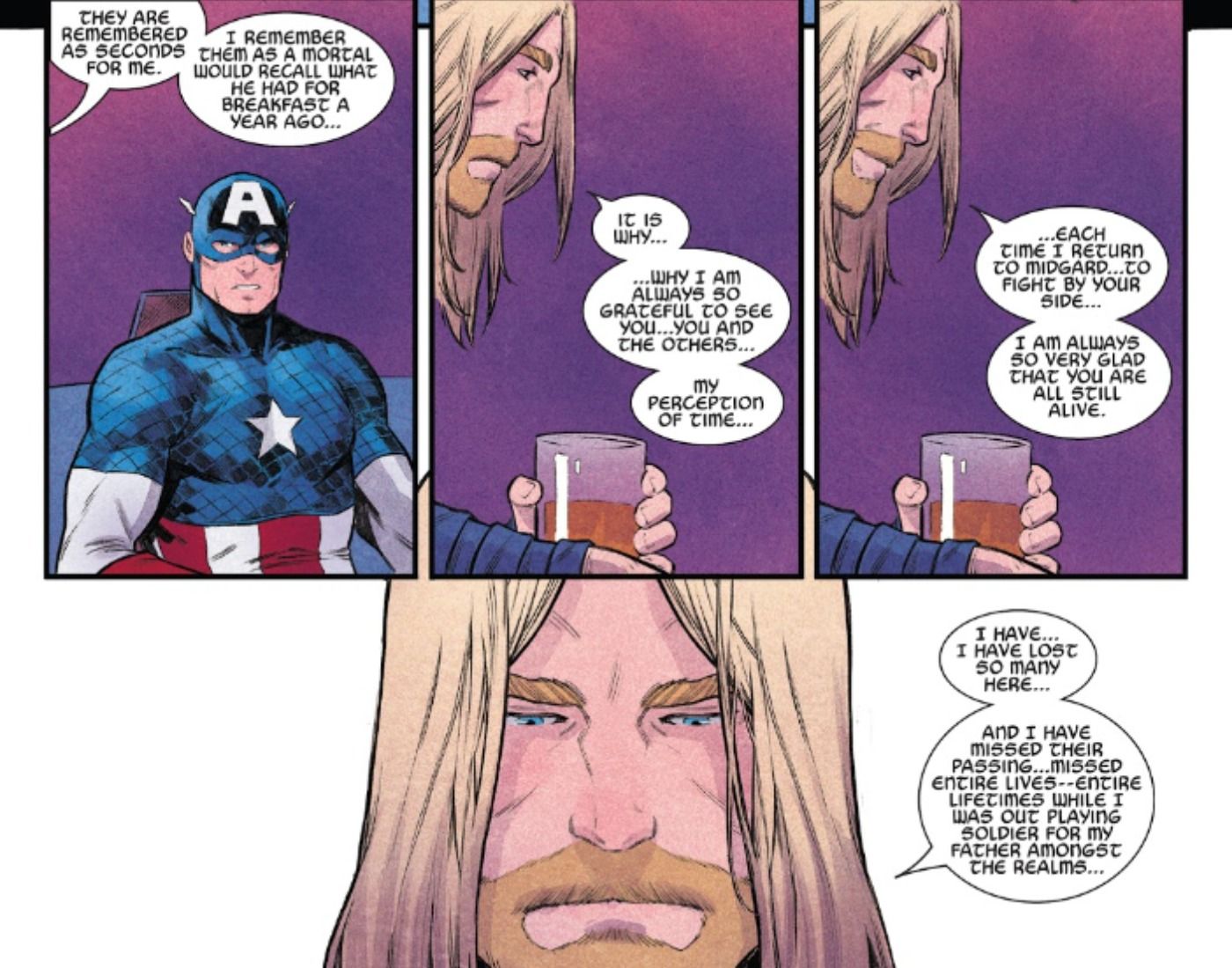Thor Reveals Why He's The Most Tragic Avenger | Screen Rant

This article reveals spoilers for Thor #15.
The Mighty Thor has just revealed why he is the most tragic member of the Avengers. Thor Odinson has always been considered one of Earth's greatest defenders. At times this has caused him a lot of trouble, as his devotion to Midgard has frequently generated conflict between Thor and All-Father Odin.
But it has also earned him countless friends and allies on Earth. Along with Captain America and Iron Man, Thor is considered one of DC's "Trinity," the key members of the Avengers. This brotherhood of heroes has brought Thor no end of joy over the years, and the Avengers have fought alongside Thor on many of his darkest nights. He hasn't always gotten on well with them all - Thor clashed with Iron Man after the superhero Civil War - but they've always wound up coming back together in the end. Even when Thor believed he faced the final Ragnarok, he knew the Avengers would remember him.
And yet, in Thor #15 by Donny Cates and Michele Bandini, Thor reveals he is secretly the most tragic Avenger of all. As Thor explains to Captain America, immortality comes at a terrible price. "A moment for you," he reveals, after demonstrating his power to the Avengers, "a battle, a war, a minute, a day... they are remembered as seconds to me. I remember them as a mortal would recall what he had for breakfast a year ago." Thor's perception of time means he cannot truly understand its passage on Earth, and whenever he returns to the planet he has no idea whether a minute has passed or a hundred years. This is why Thor is always so glad to see his friends; because whenever he returns, he cannot know whether they will still be alive. "I have... I have lost so many here," Thor admits, almost reduced to tears by the confession. "And I have missed their passing... missed entire lives -- entire lifetimes while I was out playing soldier for my father among the Realms..."

It's a powerful scene and an unforgettable character moment in that it shines a light on what it truly means to be an immortal. This perception of time is essentially a defense mechanism, allowing Asgardians to cope with their long lives without being overwhelmed with memories, but for Thor, it has proved particularly tragic. His devotion to Midgard means he has had more to do with mortals than any other immortal, and as a result, he is defined by loss. Still, Thor continues to choose to stand in defense of humanity; he embraces this suffering for the camaraderie he enjoys while he is on Earth. He has chosen the path of grief and sorrow, and he chooses it every time he travels back to Midgard.
The interesting question is whether or not the MCU's Asgardians possess a similar perception of time. If they do, then so many of Thor's decisions in the MCU are subtly rewritten. His relationship with Jane Faster is particularly affected by this, and his decision not to look Jane up after the Battle of New York in The Avengers is even more egregious a lapse. Meanwhile, his descent into PTSD in Avengers: Endgame is even easier to understand, because after years of brooding in New Asgard at Tønsberg, Norway, that mental state would have become almost all he knew. The Hulk's arrival in Endgame would have served to remind him of his heroism before the present had been consumed with sorrow, beginning his journey to healing and restoration. It will be exciting to see whether Marvel Studios tap into this idea, because it really would add so much to Thor's story.
from ScreenRant - Feed https://ift.tt/2V3G6uN
via Whole story

Post a Comment